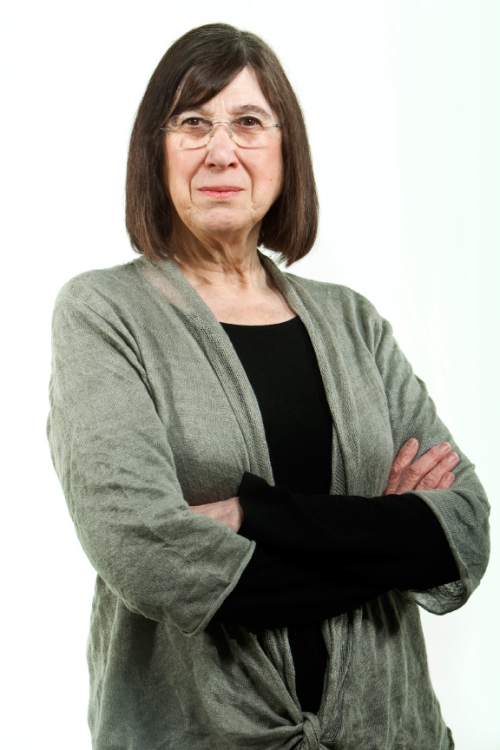This is an archived article that was published on sltrib.com in 2015, and information in the article may be outdated. It is provided only for personal research purposes and may not be reprinted.
First of two parts
Utah native Zilpha Chipman Beck advised, "If you want to do good, you go where the laws are made because a country is no better than its laws." Her daughter Reva took her words to heart – and put them into action.
Born in American Fork on April 2, 1895, Reva Beck Bosone was a Democrat — a trailblazer some would call a firebrand, and others an inspiration.
Among the first women attorneys in Utah (1930), Bosone served twice as a member of the Utah House of Representatives (1932, 1934), and rose to the post of majority floor leader. She helped obtain passage for the women and children's wage and hour law. In 1936, she became the first woman elected to a judgeship in Salt Lake City and served three terms. By 1948, she was sent to Congress out of Utah's 2nd District. Nearing the end of her political career, she was appointed chief judicial officer for the United States Postal Service.
Bosone's parents, Christian and Zilpha Beck, owned and managed American Fork's Grant Hotel (referred to as Mrs. Beck's), a livery stable, and the Pioneer Opera House. Engaging nationally renowned theatrical companies, the House was equipped with an adjustable floor that rose to accommodate dancing or lowered to seat an orchestra.
According to author Beverly Beck Clopton, in "Her Honor, the Judge," the Becks were of Mormon stock. Early on, though, Zilpha left the church and did not have her children baptized. Instead, she encouraged them to attend any church of their choice that emphasized moral values.
Mrs. Beck stressed also the importance of education for both genders — "too many women have to make their own way and rear children who are not prepared to do so," she was known to say — and championed women's abilities.
Growing up with three brothers who shared in such equity, Reva Beck Bosone later declared, "Generally speaking, men who refuse to recognize a qualified woman on their staff or as their opponent or in public office suffer from an inferiority complex. Show me an intelligent man and I'll show you a fair-minded one."
Tall, with blazing red hair, green eyes and a face framed in freckles, Bosone was spirited and dramatic. At age 12, she filled in for one of the leads performing at the opera house in "Pygmalion." She memorized her lines and stunned the audience with a performance that sparked theatrical opportunities.
"Nine years later, Reva lost her faculty for quick memorization," Clopton wrote, "influencing her choice of another career." Jumping forward, Bosone would revisit the spotlight. During a 1940s weekly KDLY-radio broadcast, called "Her Honor, the Judge," Bosone offered case studies and personal philosophies on human conduct. In a 1952 televised program, "It's a Woman's World," she focused on contemporary issues, receiving critical acclaim and increased sponsorship, along with a fair amount of grumbling. No sooner debuted, Republican women held meetings to strategize how to sway sponsors and kill the program.
In 1917, 22-year-old Bosone graduated from Westminster Junior College and in 1919 from the University of California at Berkeley. Following a seven-year stint teaching high school debate, oratory and drama classes, she charted a new course by enrolling in the University of Utah College of Law, which was then the bastion of men.
There, Reva became one of two women to graduate and the 11th woman admitted to the Utah State Bar. And there, she fell in love and married fellow law student Joseph Bosone, the son of Italian immigrants from the mining town of Helper.
Welcomed wholeheartedly by in-laws, and embracing the Italian culture, the newlyweds moved to Helper, hung their law shingle, had a daughter, Zilpha, and braced themselves for the future.
"The biggest need in politics and government today is for people of integrity and courage, who will do what they believe is right and not worry about the political consequences to themselves," Bosone said. She would know.
Eileen Hallet Stone, the author of "Hidden History of Utah," a compilation of her Salt Lake Tribune Living History columns, may be reached at ehswriter@aol.com.



